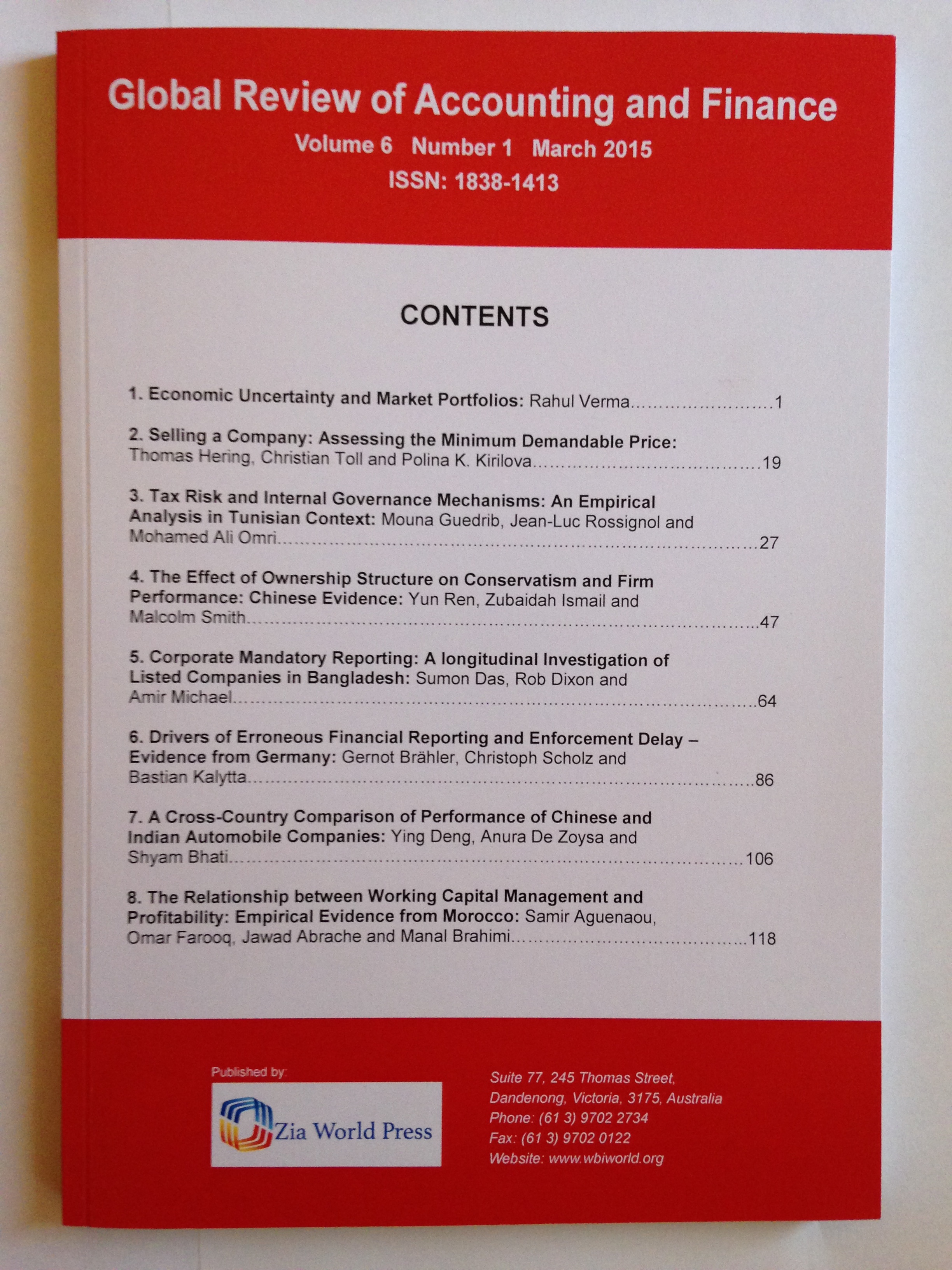Pages
27 – 46
This paper examines the impact of internal governance mechanisms on tax risk for a sample of Tunisian listed firms over the 2006 to 2010 period. Four hypotheses arise from the developed theoretical framework. These hypotheses stipulate that the independence of the board of directors, the separation of CEO and Chairman of the Board, the tax or accounting expertise of the audit committee and the tax or accounting expertise of internal audit function influence negatively the probability of presence of the tax risk. To test these hypotheses, a new measure of tax risk was conceived based on the financial statements of Tunisian listed firms as well as on a survey. The results of logistic regression show that the independence of the board of directors and the appeal to an external tax adviser has a positive and significant effect on the probability of presence of tax risk. Although, contrary to the hypothesis, these results are understandable by the measure of the tax risk used in this study. In fact, we captured the presence or the absence of this risk, by applying the statutory requirements relating to the disclosure of information on this risk in financial statements. For that purpose, we used a dichotomous variable which is equal to 1 in the presence of a tax reserve (provision) or any information about the tax risk inserted either into financial statements notes or into external auditors general reports and 0 if not. The positive relation is understandable by the dominating existence of the component of the tax reserve in this measure. Although the tax reserve allows getting the existence of a tax risk, it also represents a way of accounting management of this risk. So, the independence of the board of directors and the appeal to an external tax adviser seem to work in favor of the accounting management of the tax risk.

